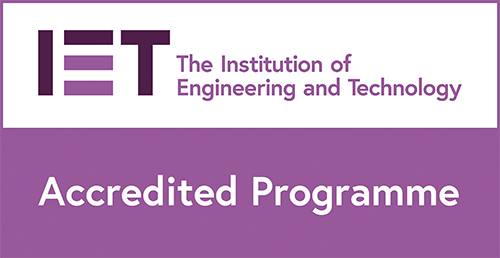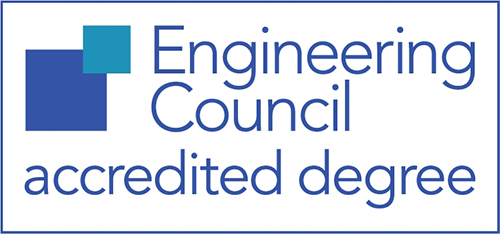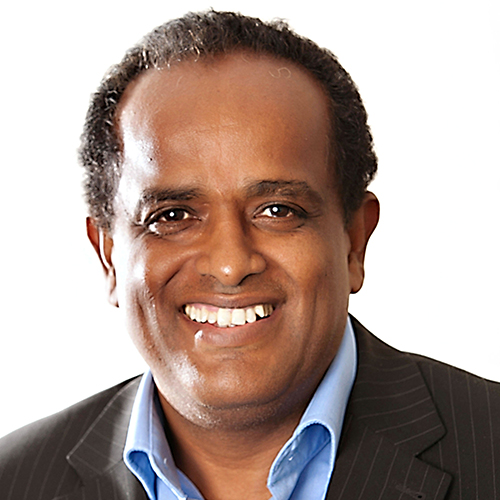Mechanical and Manufacturing Engineering, MSc
Extend your technical knowledge while pursuing your own interests and experience with this project-led Master’s in Mechanical and Manufacturing Engineering.
This MSc Mechanical and Manufacturing Engineering course allows you to tailor the course to your own needs. Gain the knowledge you need for careers in the mechanical and manufacturing engineering fields, as well as critical insight of management issues and extensive knowledge of industrial applications.
You'll also be able to pursue specialist interests through the project element of the course. Many of the projects undertaken by our students reflect the key research interests of the department, such as manufacturing, bulk materials handling and instrumentation. However, projects are also derived from our links with industry or from students' own interests or experiences.
Interested in a different year?
Select your preferred
to view up to date information.
School
Location
Duration
- 1 years full-time
- 2 years part-time
Start month
September; January
Home /international fees 2024/25
£11,000 /£17,450
What you should know about this course
What you will study
About the course team
Lectures are delivered by members of the School of Engineering who have the relevant globally recognised specialism within the respective field. Guest speakers bring additional perspectives from industry or research and keep you updated with the latest industry standards in your discipline.
Come and meet us
We are offering virtual events so that you can still experience how Greenwich could be the right university for you.
Next Open Days
Got a question?
To find out more about our Open Days and Campus Tours or if you need any assistance, please email opendays@gre.ac.uk.
Entry requirements
The University will normally consider applicants with a relevant BSc (Hons, Class 2.2 and above, Mechanical Engineering, Manufacturing Engineering, Materials Science, or similar); or an overseas equivalent.
Applicants without a first degree but with professional and vocational experience (e.g. incorporated engineer or chartered engineer status) may be considered if they demonstrate the potential to succeed on the programme.
For more information, use our contact form or call us on 020 8331 9000.
You can also read our admissions policy.
Available to overseas students?
Yes
Can I use Prior Learning?
Find out more on our Recognition of Prior Learning pages.
How you will learn
Teaching
We use different teaching approaches to give you a varied experience. This includes lectures, interactive paper-led discussions and exercises to encourage creative thinking.
Our taught modules are informed by research. The theory of each topic is accompanied by practical elements covering paper-based, computer-based and hands-on building type challenges.
See full details of our syllabus above.
Class sizes
For specialist modules, our classes are usually limited to 20 students in lab sessions and 40 in lectures. This helps to create familiarity between students and staff and ensure a great learning experience. The modules that run across several courses can have larger classes sizes, which are typically broken down into smaller groups.
Independent learning
Our courses are designed to give you the space for exploratory and independent study. You'll work towards individual and group assignments and undertake the preparation/follow-up work associated with lectures, seminars, integrative assignments and laboratory classes.
We encourage students to take advantage of a range of related extra-curricular opportunities available within the university and elsewhere.
Overall workload
If you are studying full-time, you should expect the workload to be similar to a full-time job. For part-time students, this will reduce in proportion with the number of courses you are studying.
Assessment
Students will be assessed through a variety of methods, such as:
- Classroom presentations, discussions and case-studies
- Critical reviews, looking at new areas of research
- Examinations.
Feedback summary
University policy is to give feedback on assignments within 15 working days of the coursework submission date.
Examination results will be available within 28 days.
Dates and timetables
Each academic year runs from September to June. You can begin the course in September or January.
Full teaching timetables are not usually available until term has started. For any queries, please call 020 8331 9000.
Fees and funding
University is a great investment in your future. English-domiciled graduate annual salaries were £10,500 more than non-graduates in 2023 - and the UK Government projects that 88% of new jobs by 2035 will be at graduate level.
(Source: DfE Graduate labour market statistics: 2023/DfE Labour market and skills projections: 2020 to 2035).
| Cohort | Full time | Part time | Distance learning |
|---|---|---|---|
| Home | £11,000 | £1,850 per 30 credits | N/A |
| International | £17,450 | £2,908 per 30 credits | N/A |
Accommodation costs
Whether you choose to live in halls of residence or rent privately, we can help you find what you're looking for. University accommodation is available from £126.35 per person per week (bills included), depending on your location and preferences. If you require more space or facilities, these options are available at a slightly higher cost.
Scholarships and bursaries
We offer a wide range of financial help including scholarships and bursaries.
The Greenwich Bursary
This bursary is worth £700 for new undergraduate students with a low household income, entering Year 0 or 1 who meet the eligibility criteria.
EU Bursary
Following the UK's departure from the European Union, we are supporting new EU students by offering a substantial fee-reduction for studying.
Financial support
We want your time at university to be enjoyable, rewarding, and free of unnecessary stress, so planning your finances before you come to university can help to reduce financial concerns. We can offer advice on living costs and budgeting, as well as on awards, allowances and loans.
Careers and placements
What sort of careers do graduates pursue?
This course provides a wide variety of opportunities for mechanical and manufacturing engineers in a range of sectors, from the automotive to the process industries.
Do you provide employability services?
We have a team dedicated to enhancing student employment outcomes. This includes an Employer Partnerships Manager, who works with companies to provide placement and employment opportunities.
Our team will also help you understand the jobs market, produce effective CVs, and prepare for a graduate job and placement applications in your final year.
Accommodation
Medway campus in Kent
Our Medway halls of residence are all located on-campus, with facilities include an on-site café, launderette and bar. And the halls are located within minutes of the historic Chatham dockyard and Chatham and Gillingham town centres.
With student-run social events, modern ensuite rooms and communal shared spaces, you’ll find that living in halls of residence will be a highlight of your University of Greenwich experience.
Rooms start at £172.06/wk and include Wi-Fi, utility bills and 24-hour residential support. Our Medway accommodation boasts 350 rooms with 24/7 security, and resident car parking permits are available.
Support and advice
Academic skills and study support
The course leader has the overall responsibility for your course and will be your first point of contact.
We also allocate you a personal tutor, who you meet soon after you join the department. Their role is to support your personal and academic development and act as your point of contact for queries or problems.
Support from the department
We help new students over the first few weeks with our faculty and department induction. This covers the first week of term 1 (September) and term 2 (January). We'll also help you discover the academic and social landscape at Medway Campus.
Not quite what you were looking for?
We've got plenty of other courses for you to choose from. Browse our postgraduate courses or check our related courses below.....
Mechanical engineering at the University of Greenwich
This is one of the broadest areas of engineering. You will learn about the design, construction and operation of mechanical systems. Studying at our Medway Campus, you’ll benefit from our strong links with local industry.
Visit our mechanical engineering degrees page.
Mechanical engineering degrees
Studying engineering at the University of Greenwich
Gain a solid foundation in all aspects of engineering in specialist labs on our Medway Campus and choose the area you want to specialise in later in your studies.
Visit our engineering degrees page.
Engineering subjects
Chemical engineering degrees
Study in specialist laboratory facilities at our Medway Campus where you’ll gain the skills and knowledge you need to become a professional chemical engineer, using the latest equipment and simulation software.
Civil engineering degrees
Discover pioneering approaches in specialist laboratory facilities on our Medway Campus, where you will use the latest surveying equipment and learn how to apply them in real-world scenarios.
Computer engineering degrees
These pioneering degrees combine technical engineering with an impressive depth of computer theory. You'll gain the specialist knowledge and skills needed to work in this cutting-edge industry.
Construction degrees
Our range of courses, some of which are professionally accredited, will give you the skills and knowledge you need to start, or develop, your career.
Electrical and electronic engineering degrees
Learn how to make the world a better, more connected place. You will study in specialist lab facilities on our Medway Campus and benefit from our close ties with engineering companies such as BAE Systems and Ford.
Engineering management degrees
Combine solid technical skills in engineering with business enterprise management skills. Studying on our Medway Campus, you will benefit from specialist and integrated lab facilities.
Engineering technology degrees
Learn how to apply engineering to a range of real-world problems. Studying on our Medway Campus, you will develop the skills and knowledge you need to drive changes in product design using the latest technological advances.
Mechanical engineering degrees
This is one of the broadest areas of engineering. You will learn about the design, construction and operation of mechanical systems. Studying at our Medway Campus, you’ll benefit from our strong links with local industry.
Mode of study
Select from the dropdown below.
| Course level | |
| UCAS code | |
| Duration | |
| Location |










